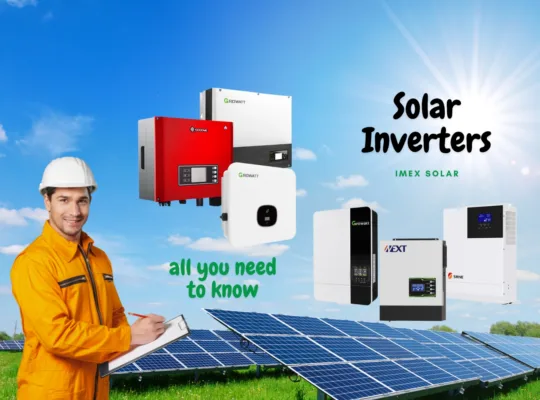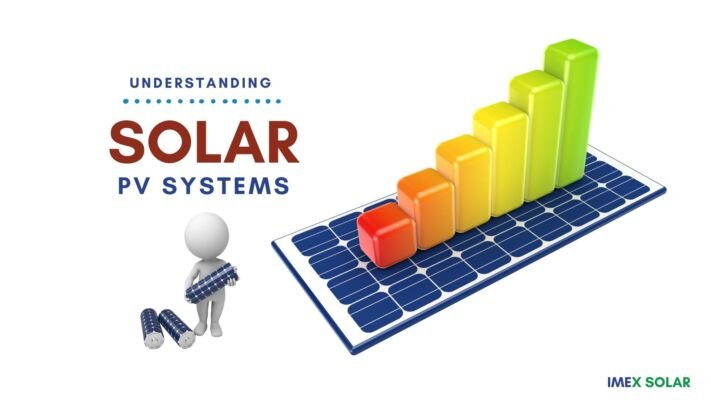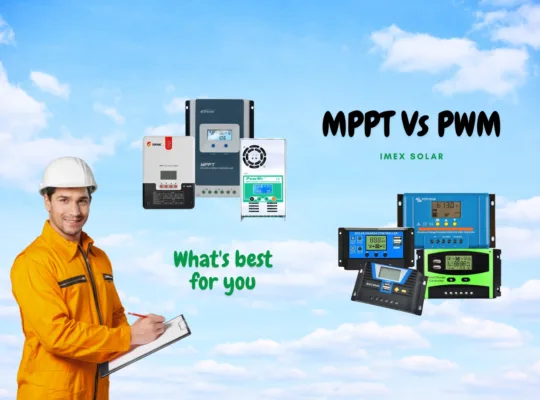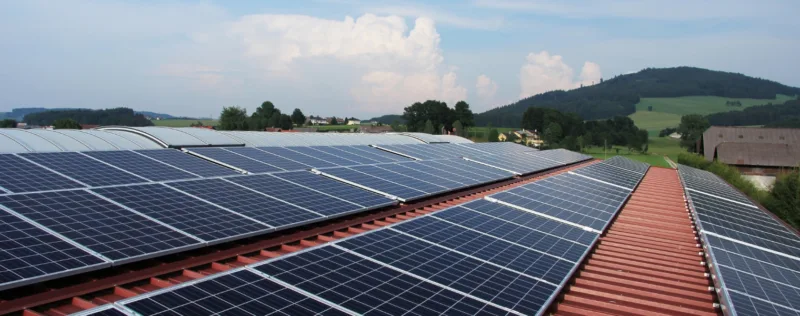Resources
OFF GRID SOLAR SYSTEM, HOW IT WORKS?
“By harnessing the power of the sun, an off grid solar system empowers you to take control of your energy future, providing independence and sustainability for your home or business.”
“By harnessing the power of the sun, an off grid solar system empowers you to take control of your energy future, providing independence and sustainability for your home or business.”
Solar power is 100% clean, green energy harnessed from the sun, perfectly suited for many countries. Solar is currently the fastest growing renewable energy industry in the world. Recent advancements in solar technology have dramatically reduced the costs, solar systems are becoming more affordable and popular day by day.
Sri Lanka is in the midst of one of the worst economic crises it’s ever seen, people and businesses are facing numerous challenges with frequent power outages, extreme scarcity of fuel supplies, and increasing energy costs. Conventional On-grid Solar systems are not functional during power outages, making them not effective in this scenario.
However, an Off Grid solar PV system with energy storage backup provides us with the perfect solution to addressing all the above problems.
Off Grid Solar System makes you truly energy independent from the grid supply, ensuring safe reliable uninterrupted power supply to your house and business 24X7. A properly designed power system is guaranteed to provide peace of mind, and a stress-free green energy solution with great returns for years to come.

WHAT IS AN OFF GRID SOLAR SYSTEM?
An Off Grid solar system is a self-sufficient power generation and storage system that operates independently of the power grid, so no grid power is required, It typically consists of solar panels, a charge controller, a battery bank, and an inverter. The solar panels convert sunlight into direct current (DC) electricity, which is then stored in the battery bank. The charge controller regulates the flow of electricity between the solar panels and the battery bank, preventing overcharging or undercharging of the batteries. The inverter converts the DC electricity stored in the battery bank into alternating current (AC) electricity, which can be used to power household appliances and electronics.
HOW DOES AN OFF GRID SOLAR SYSTEM WORK?
Off Grid solar systems work by using solar panels to generate electricity from the sun’s energy. The electricity is then stored in a battery bank, which can be used to power appliances and electronics when the sun is not shining or during power outages. The charge controller regulates the flow of electricity between the solar panels and the battery bank to prevent overcharging or undercharging of the batteries, which can damage them and shorten their lifespan. The inverter converts the DC electricity stored in the battery bank into AC electricity, which can be used to power household appliances and electronics.
Components of off grid solar system
Off Grid solar systems consist of several key components, including:
- Solar panels: These panels convert sunlight into DC electricity. They are typically mounted on rooftops or other structures that receive direct sunlight.
- Solar Charge controller: This device regulates the amount of electricity that is sent to the battery bank. It prevents overcharging and ensures that the batteries are charged to their optimal level.
- Battery bank: This is a collection of batteries that store the energy produced by the solar panels. The battery bank is sized based on the expected energy consumption and the number of days of autonomy required.
- Inverter: This device converts the DC electricity produced by the solar panels and stored in the battery bank into AC electricity that can be used to power household or business appliances.
- In some cases, the users can select Hybrid Off Grid Inverter, where the solar charge controller, grid charger, inverter and ATS all items are built to into one unit.
- Backup generator: This is an optional component that can be used to supplement the solar power system in times of high energy demand or when sunlight is not available.
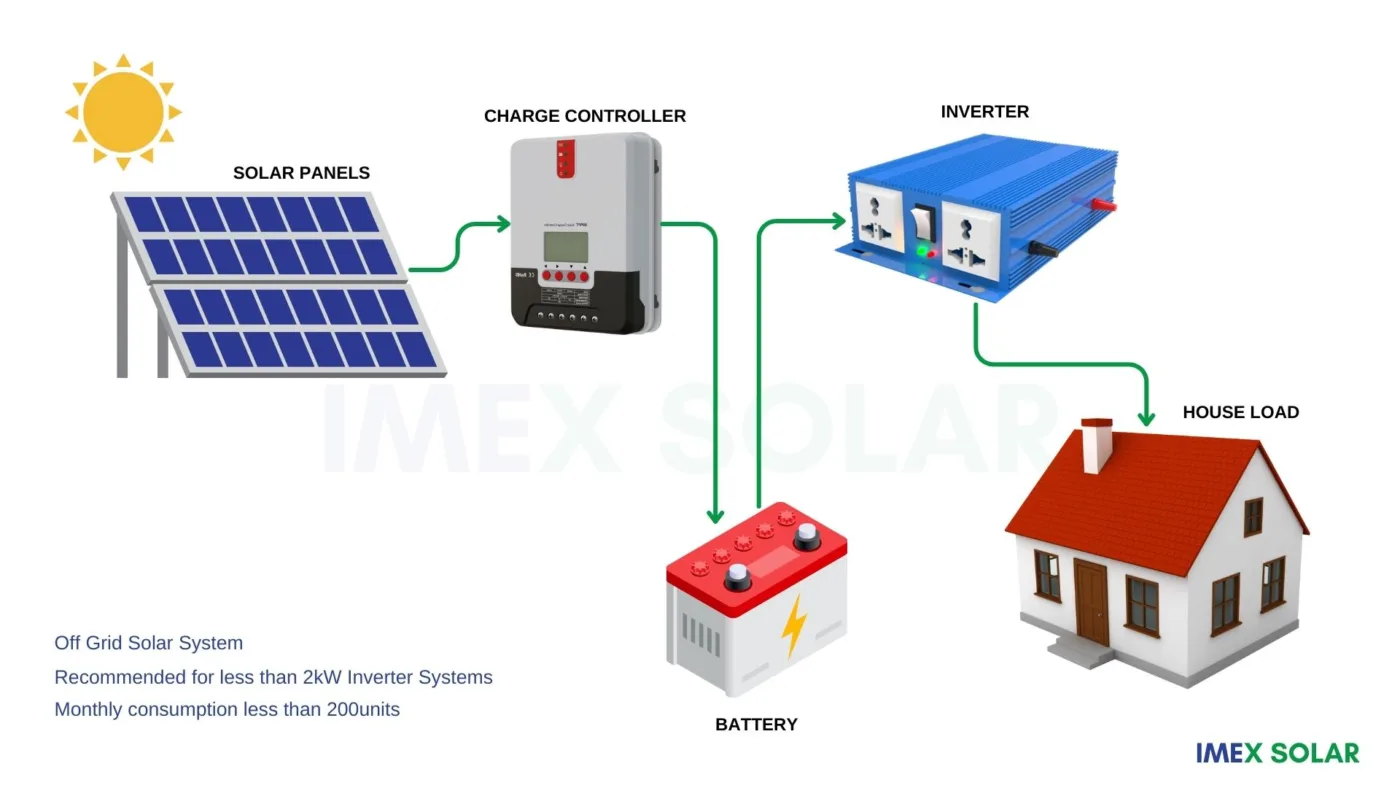
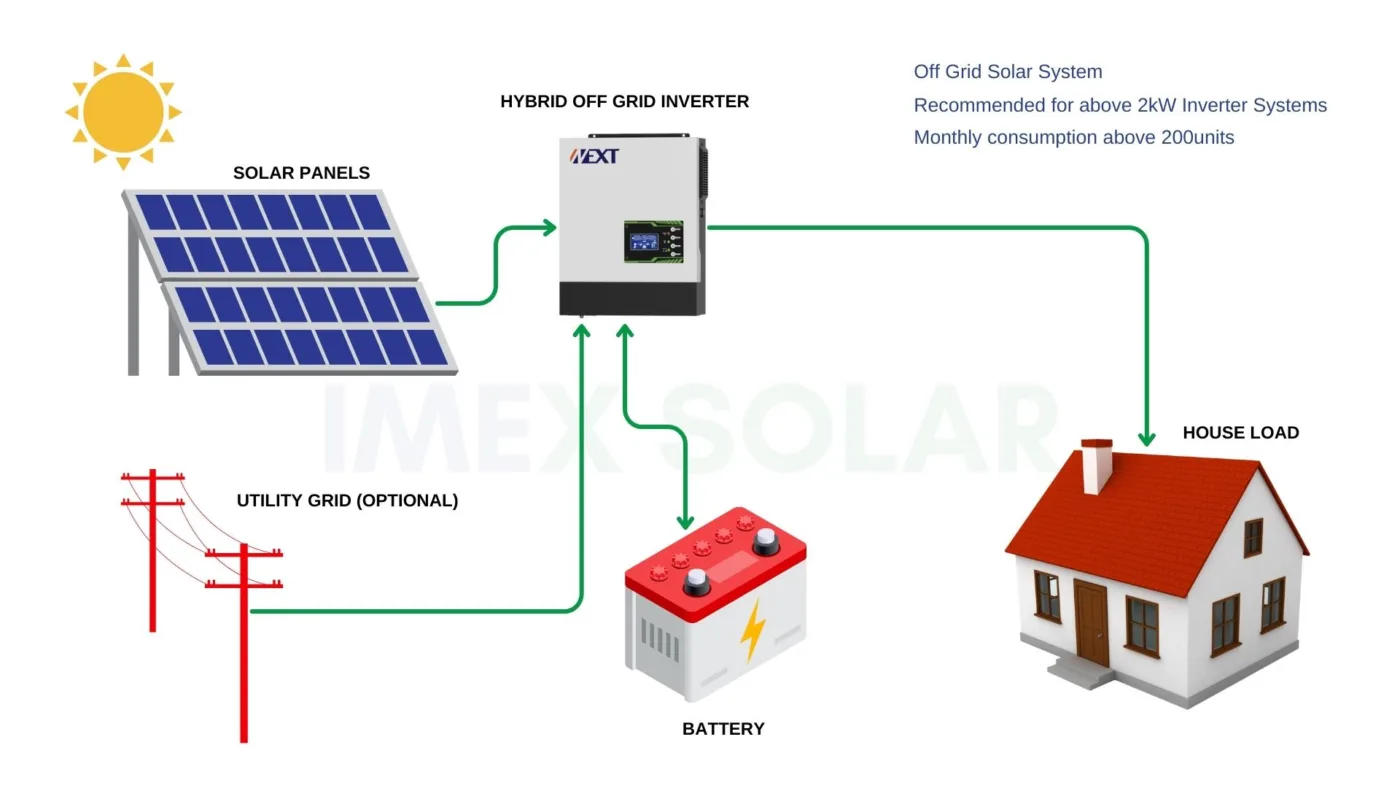
ADVANTAGES OF OFF GRID SOLAR SYSTEMS
- Energy independence: With an Off Grid solar system, you are not dependent on the grid for your energy needs, which means you can generate and use your own electricity, making you independent from the utility companies.
- Cost savings: By using an off grid solar system, you can save a lot of money on your energy bills, as you are not paying for electricity from the grid.
- Environmental benefits: Solar power is a clean, renewable source of energy, and using an Off Grid solar system means you are reducing your carbon footprint and helping to reduce the amount of greenhouse gases in the atmosphere.
- Low maintenance: Solar panels require very little maintenance, and an Off Grid solar system has no moving parts, so there are no major maintenance costs.
- Long lifespan: Solar panels can last up to 25 years or more, and with proper maintenance, an Off Grid solar system can last for decades.
- No power outages: With an Off Grid solar system, you will not be affected by power outages caused by storms, grid failures, or other issues.
- Silent operation: An Off Grid solar system operates silently, unlike generators or other forms of backup power, which can be noisy and disruptive.
- No fuel costs: Solar power is free, and with an Off Grid solar system, you do not need to buy fuel, making it a cost-effective option.
- Scalable: Off Grid solar systems can be scaled up or down to meet your changing energy needs, so you can add more panels or batteries as your energy demands increase.
- Energy security: An Off Grid solar system provides energy security, as you are not dependent on the grid or foreign sources of energy.

DISADVANATGES OF OFF GRID SOLAR SYSTEMS
- Upfront cost: Off grid solar systems can be expensive to install and may require a significant upfront investment.
- Limited power output: Off Grid solar systems have a limited power output, which means they may not be able to provide enough energy for all your needs.
- Battery life: The batteries in Off Grid solar systems have a limited lifespan and will need to be replaced periodically, which can be costly.
- Weather dependency: Off Grid solar systems rely on sunlight to generate power, so they may not work as efficiently on cloudy or rainy days.
- System complexity: Off Grid solar systems can be complex and require specialized knowledge to install and maintain.
- Storage limitations: Off Grid solar systems require storage to hold excess power generated during the day for use at night or on cloudy days, and the storage capacity can be limited. With limited battery storage, overall system efficiency / monthly power generation can become limited.
- Space requirements: Off Grid solar systems require a significant amount of space to install the solar panels, which may not be practical for all locations.
- Maintenance: While solar panels require little maintenance, other components of an Off Grid solar system, such as batteries and inverters, require regular maintenance to ensure proper functioning.
- Risk of overloading: Off Grid solar systems can be overloaded if the power demand exceeds the system’s capacity, which can damage the system and lead to costly repairs.
In conclusion, Off Grid solar systems offer many advantages, including cost savings, energy independence, environmental sustainability, and resilience. While there are some limitations to these systems, the benefits they provide make them an attractive option for many homeowners and businesses especially if the grid power supply is unstable. As solar technology continues to improve and become more affordable, we can expect to see more people turning to Off Grid systems as a reliable and sustainable source of electricity.
In Sri Lankan context, frequent grid power outages are common nowadays, such Off Grid solar systems have emerged as the popular solution to the power crisis, to power up emergency loads in households, businesses and factories.

